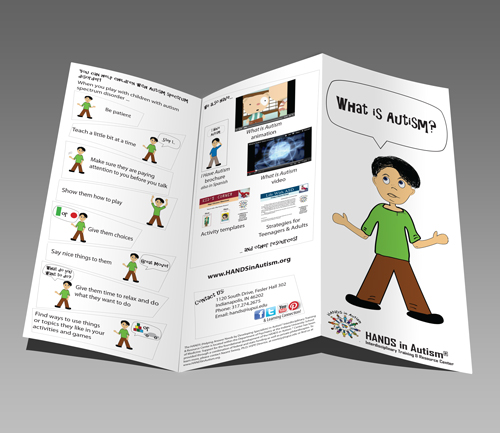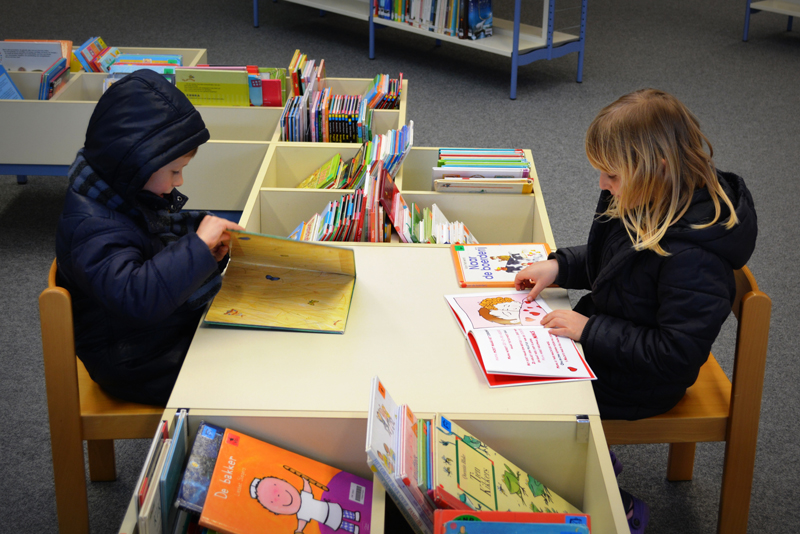Section 2: Family Life
123 Sibling Adjustment Fact Sheet
Having a child with ASD affects everyone in the family. A large amount of research has looked at the impact of diagnosis upon parents, whereas much less research has centered on the impacts and changes that occur for siblings. When reviewing sibling research, there are mixed results depending upon a few factors. However, overarching themes emerge from such research along with common questions that siblings may have about ASD or other developmental disabilities.
Common experiences and characteristics of siblings:
Forbearance:
Siblings proactively look for ways to cope with the behaviors of their brother or sister with ASD and to adjust to such behaviors or differences. This usually leads to an increased awareness and understanding of others.
Mutual Understanding:
Siblings felt it was important for their brother or sister with ASD to be able to speak in some manner so they could communicate with one another and understand each other.
Joint Activities:
Siblings recognized that, while their brother or sister with ASD could not participate in certain activities, he or she was still capable of participating in many “normal” activities (i.e. things they would do if their brother or sister did not have ASD).
Private Time:
Siblings expressed the benefit of having private time (as suggested in the “Tips for siblings” page). Such time and space was important individually and proved to be helpful in difficult situations.
Concern for Greater Well-Being:
Siblings were strongly concerned about the well-being of their brother or sister with ASD and advocated for such well-being, support, and acceptance.
Acceptance:
3 stages of acceptance were identified for siblings:
- Digesting information related to ASD
- Going along with it
- Getting used to it and beginning to feel like it was “normal” and simply part of who their brother or sister was as a person rather than focusing upon the differences or challenges.
Exchanging Experiences:
Siblings appreciated the opportunity to meet with other siblings who have similar experiences as themselves (see “Finding the right support group”). By exchanging or reading stories and getting information about ASD from other siblings who understand their situation and experiences, they were able to put their own situation into perspective.
Social Support:
Siblings indicate that they, too, need support and help while recognizing that their sibling with ASD may require more attention. Regardless of their differences, siblings expected parents to treat all children in the family equally.
Dealing with the Outside World:

Many siblings noted that people in the outside world do not always know about their brother or sister’s diagnosis.
(Moyson & Roeyers, 2011)
Siblings tend to view their relationship with their brother or sister with autism in a positive way when:
- They understood their brother or sister’s disability
- They had and used effective coping skills
- Their parents and peers responded positively towards their brother or sister with ASD
(McHale et al., 1986)
Siblings of children with ASD often have many questions regarding their sibling’s diagnosis. The following were found to be common topics that many questions involved:
- Difficulties with communication for their sibling with ASD
- Differences in parental attitudes and actions for their sibling with ASD
- Presence of odd behaviors or areas of intense interest
- Differences in classrooms or supports in the school setting
- Progress or skills in various developmental areas for which their sibling may be delayed
- Differences that may exist from other children and siblings
- Involvement or needs related to therapies, doctors, and/or intervention
- Presence of obsessive or repetitive behaviors
When parents or caregivers spoke with siblings regarding their brother or sister’s diagnosis of ASD, approximately half of siblings had no particular reaction. Other responses that occurred across a large number of siblings (greater than 13%) included a more accepting attitude than expected and a sense of understanding of the diagnosis. A smaller percentage of siblings seemed to express sadness, wanted to learn more, showed elements of surprise, or seemed to not understand.
(Tanaka, Uchiyama, & Endo, 2011)
 Given the unique experiences of siblings who have brothers or sisters with ASD, there is great opportunity for personal growth and character development. Research has indicated several areas of strengths often possessed by siblings in a family with an individual with ASD.
Given the unique experiences of siblings who have brothers or sisters with ASD, there is great opportunity for personal growth and character development. Research has indicated several areas of strengths often possessed by siblings in a family with an individual with ASD.
- Greater maturity
- Enhanced self-concept, social competence, and awareness
- Increased insight and reflection
- Acceptance and greater tolerance of differences
- Enriched pride
- Overall increased in loyalty and commitment
(Schubert, n.d.)
References
McHale, S. M., Sloan, J., & Simeonsson, RJ. (1986). Sibling relationship of children with autistic, mentally retarded, and nonhandicapped brothers and sisters. Journal of Autism and developmental Disorders, 23, 665-674.
Moyson, T., & Roeyers, H. (2011). The quality of life of siblings of children with autism spectrum disorder. Exceptional Children, 78, 41-55.
Schubert, B. T. (n.d.). Opportunities available to brothers and sisters. Retrieved from http://www.autism.com/index.php/advocacy_sibs2
Tanaka, K., Uchiyama, T., & Endo, F. (2011). Informing children about their sibling’s diagnosis of autism spectrum disorder: An initial investigation into current practices. Research in Autism Spectrum Disorders, 5, 1421-1429.
